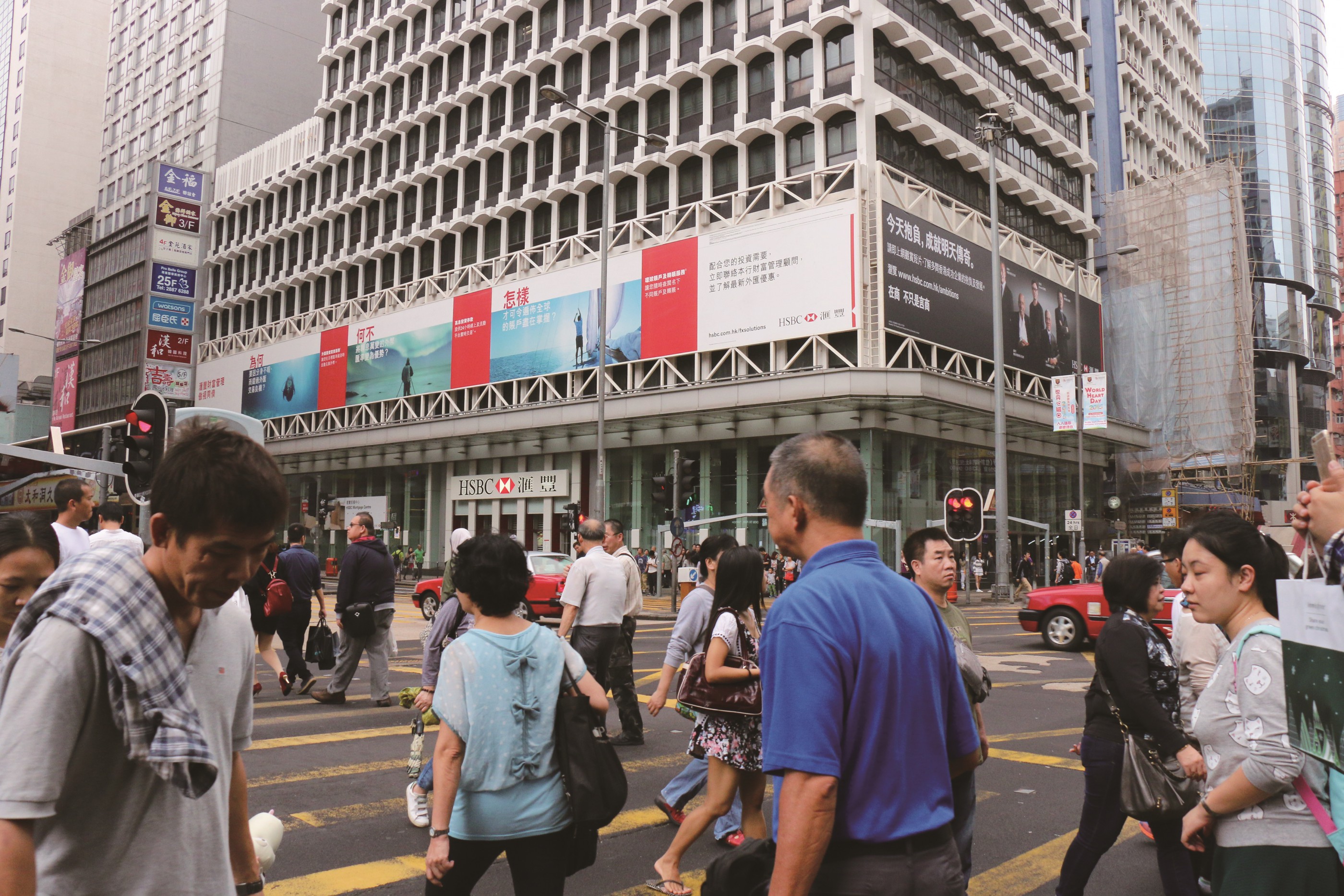Does Hong Kong’s economic integration with the Mainland help or hurt its status as an international financial centre?
By Mavis Wong & Zoe Tam
Throughout its evolution from a sleepy fishing village into a bustling entrepôt for trade between China and the rest of the world, and from an export-led manufacturing centre into an international financial centre, Hong Kong has thrived on its international connections. It attempted to underline the fact in 2001 with an official campaign to “brand” the city “Asia’s World City.”
Behind the title was the idea of Hong Kong as an international financial centre with a free and stable economy, free flow of information and the rule of law, all qualities that appeal to international investors.
On paper, the city is doing well. According to the United Nations Conference on Trade and Development World Investment Report 2015, Hong Kong, for the first time, beat the US, the UK and Singapore and came second only to mainland China in terms of global foreign direct investment in both inflows and outflows. It also ranked first in the Heritage Foundation’s 2015 Index of Economic Freedom.
However, it faces stiff competition from Singapore, which has been named the “Easiest place to do business” for nine consecutive years by the World Bank, while Hong Kong ranked third last year.
Although Hong Kong has a well-established investment system, its status as a financial market faces a number of potential threats. According to the World Economic Forum’s Global Competitiveness Report of 2015 to 2016, Hong Kong ranked third in the finance sector, losing its top ranking to New Zealand and Singapore.
However, Simon Galpin, the director-general of InvestHK, the government department responsible for attracting and retaining foreign direct investment, thinks Hong Kong still has a leading role in Asia due to its global reach.
“The best way to describe Hong Kong is as a connector for investment in and out,” says Galpin.
Galpin adds Hong Kong has a geographical advantage. Business people can travel to north-east Asian cities such as Beijing, Tokyo and Seoul, or south to Manila or Singapore within three to four hours; Singapore cannot provide such convenience.
There are other reasons why foreign and Mainland investors find Hong Kong attractive. Galpin explains Hong Kong provides high-quality professional services in its law, accounting and consulting firms.
InvestHK helped 355 overseas and Mainland companies to start and develop their businesses in Hong Kong last year. Galpin says businesses continue to choose Hong Kong because of its enduring advantages, which include the rule of law, an independent judiciary, free flow of information, and a simple low tax regime.
“They do it because they feel that Hong Kong is a secure and trustworthy base to do business,” he says.
Senior investment banker Vincent Chan Cheong-wa agrees that Hong Kong’s independent judiciary helps attract foreign investors. “The reason why Hong Kong can become a vibrant financial hub is because of the law courts,” he says, “and this is sacred and inviolable.”
Yet, this is one of the areas where Hong Kong’s closer integration with the Mainland has raised concerns. In a speech at the University of Hong Kong last year, the former Secretary for Justice Wong Yan-lung said heightened vigilance was needed to protect the rule of law because of “the rapid integration between Hong Kong and the Mainland in the social and economic realms. Temptations abound with big moneys flowing in.”
Hedge fund manager Edward Chin Chi-kin, convener of the group, 2047 Hong Kong Finance Monitor, is also worried about threats to the rule of law. He points to remarks made by Zhang Xiaoming, director of the Central Government’s Liaison Office and a Mainland legal scholar in September that said the Chief Executive was in a “special legal position that transcends the three branches” of the executive, the legislature and the judiciary.
“It’s getting very scary,” says Chin, who adds such comments raise questions about the separation of powers in Hong Kong and whether it can maintain its free markets.
So far, such worries have failed to slow the growth of Hong Kong’s economic ties to the Mainland. From the Mainland and Hong Kong Closer Economic Partnership Arrangement (CEPA) in 2003, to the launch last year of the Shanghai-Hong Kong Stock Connect, which allows buyers from both places to buy stocks from the two markets in a much more convenient way, Hong Kong and the Mainland have been expanding areas of cooperation since the handover in 1997.
According to statistics from the Census and Statistics Department, the Mainland has been a major player, either as the largest or second largest foreign investor, in Hong Kong since 2000.
Some worry that this may breed a culture of complacency and overdependence on the Mainland, hurting Hong Kong’s international character and long-term prospects. In August, Martin Murphy, the former head of the Economic-Political Section at the US Consulate in Hong Kong, criticised Hong Kong for “having grown fat and lazy on Mainland tourism and entrepôt services” and added: “The economy is just one arena in which Hong Kong would benefit from less ‘Mainlandisation’.”
Investment banker Vincent Chan has researched the linkage between the Hong Kong and Mainland stock markets and discovered they share similar trends. This indicates movements on the Hong Kong stock exchange are highly connected to the performance of the Mainland stock market and economy.
One of the most obvious cases is the striking similarity in movements on the Shanghai Composite, Hang Seng and H-share indices between November 2014 and early October this year. When the People’s Bank of China cut its interest rate to 5.6 per cent last November, all bourses rose. Another similarity could be seen in June this year, when the Hang Seng Index experienced a dramatic drop after a Chinese stock market crash.
Vincent Chan notes Chinese companies are the major component of Hong Kong’s stock market. He says 60 per cent of the capitalisation of the Hang Seng Index is made up of Mainland stocks. As for the rest, more than 20 per cent are stocks in overseas companies, while local businesses make up less than 20 per cent.
Chan explains Hong Kong is considered to be different from other cities in the Mainland because it is well known for having a free market where investors can easily practise risk control. Buyers can conveniently withdraw from their investment whenever they want. However, Chinese authorities may intervene heavily in the market like they did in the August crash, which may indirectly affect the stability of Hong Kong’s stock market. The unstable investment environment makes it difficult for foreign investors to execute risk-control plans.
Despite Hong Kong’s advantages, Chan is pessimistic about the future of Hong Kong as an international trade hub as the Mainland may further open its markets to foreign investors. “According to the trend of China’s development, the China market will inevitably become freer…How long can Hong Kong maintain its unique status as a financial centre?”
However, Thomas Chan Man-hung, head of the China Business Centre at the Hong Kong Polytechnic University, thinks China’s development will have a more benign impact on Hong Kong. “Without the cooperation with China, Hong Kong would have ‘died’ a long time ago,” says Chan.
Rather than being a threat to Hong Kong’s status as an international financial centre, Chan thinks the “China factor” is the number one reason for Hong Kong’s success.
Chan says the threats to Hong Kong’s economy are internal rather than external factors. He complains that Hong Kong’s young people are too inward-looking and resistant to learning from outside the city and that its financial services sector relies almost solely on the stock market. Chan suggests the Hong Kong government should promote bonds, insurance and fund investment services in order to attract more foreign investment.
Stephen Wong Yuan-shan, an adjunct associate professor at The Chinese University of Hong Kong, shares this view on the need to diversify Hong Kong’s financial sector. He says the stock market should not be “the only foot” in Hong Kong’s financial development.
“Singapore, Shanghai, Qianhai, Shenzhen and even London are major competitors to Hong Kong because Hong Kong’s financial market mainly relies on stocks, while London has a deeper and more international market,” he says. Like Chan, Wong also suggests developing the bond market.
However, for investment banker Vincent Chan, Hong Kong should not just concentrate on developing financial products and services. He thinks Hong Kong lags behind cities like Singapore when it comes to developing other industries such as e-commerce and financial technology. “Hong Kong is putting all its eggs in one basket,” Chan says.
For now, it may seem Hong Kong has not yet lost its lustre as an international financial centre but most commentators agree it should not rest on its laurels.
Edited by Total Lam














































